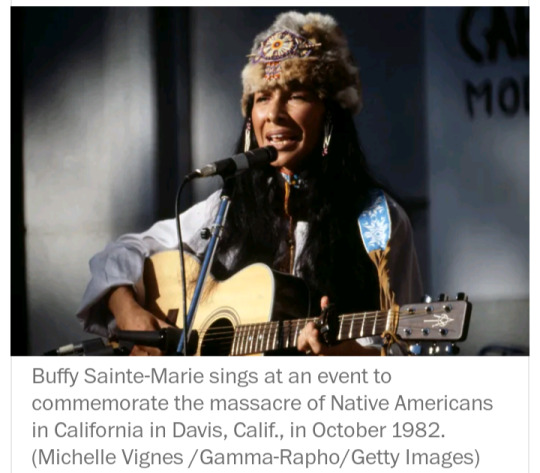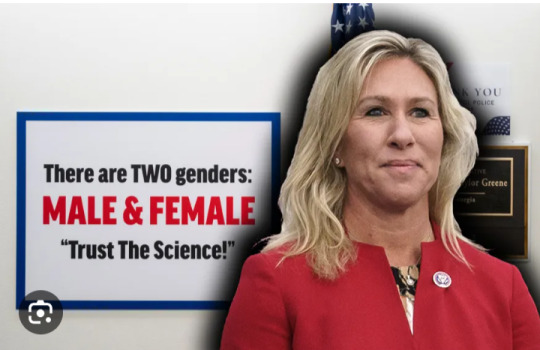#Civil Society
Explore tagged Tumblr posts
Text
ADVOCATES IN CONGRESS HAVE THREATENED TO NOT VOTE FOR ANY SPENDING BILLS UNLESS KOSA IS INCLUDED

While the Continuing Resolutions does not include KOSA, advocates for the bill are still pushing VERY HARD to add it to the package of bills, even going as far as to not vote for disaster relief bills if KOSA is not added to the package of bills.
WE HAVE TO CALL AND MAKE OUR VOICES HEARD. Below are the posts for contact info and call tools to call, email, and fax both representatives and senators to tell them to say NO to KOSA, it's important to keep up the pressure.
STOP KOSA (SENATE VERSION)
STOP KOSA (HOUSE VERSION)
#kosa#stop kosa#fuck kosa#us politics#censorship#ngo#nonprofits#nonprofit#aclu#american civil liberties union#civil society#civil rights#fuck trump#stop project 2025#we will not go back#donotobey#do not obey in advance#resistance#resist#fuck elon musk#keep fighting#keep going#stand and fight#senate#usa news#contact your senators#raiseawareness#senators#bad internet bills#owl house
436 notes
·
View notes
Text
HEADS UP! HR 9495 HAS BEEN RECEIVED IN SENATE!

Reminder on how to find your Senators!
If you have a GOP/MAGA Senator, use this advice from Reddit in trying to convince them to oppose it:
Do not stop fighting!
#hr 9495#HR9495#censorship#ngo#nonprofits#nonprofit#aclu#american civil liberties union#civil society#civil rights#fuck trump#stop project 2025#we will not go back#donotobey#do not obey in advance#resistance#resist#fuck elon musk#keep fighting#keep going#stand and fight#senate#usa news#us politics#contact your senators#raiseawareness#senators
398 notes
·
View notes
Text
In a renewed critique, Cherian George, Professor of Media Studies at Hong Kong Baptist University, called for the Singapore government to reconsider its approach, advocating for more collaborative and trust-building engagement with social issues, rather than imposing top-down authority for genuine community solidarity.
During a panel discussion titled “Community and the State” at the Institute of Policy Studies’ Singapore Perspectives conference on 20 January, George revisited the banyan tree metaphor, which was first introduced by former Minister for Foreign Affairs George Yeo in his 1991 speech.
At the time, Yeo had argued that for ground-up civic institutions to flourish, the state needed to “withdraw a little and provide more space for local initiative.”
Comparing the state to a banyan tree, Yeo, a fig tree that spreads outward indefinitely, stated:
“The problem now is that under a banyan tree very little else can grow. ” “When state institutions are too pervasive, civic institutions cannot thrive. Therefore, it is necessary to prune the banyan tree so that other plants can also grow.”
However, George countered that the banyan tree does not inherently stifle growth beneath it.
Instead, the banyan “remains close to the ground,” sustaining diverse life around it, “The banyan is strong and majestic, but it sustains diverse life beneath it, within it, and on it, unlike the giant redwood.”
In contrast to Yeo’s argument, George contended that “the state does not need to retreat from its engagement with social issues.”
Rather, he argued, “The state overwhelms society, not because it is too large or capable, but because it suppresses the vibrancy of civil society.”
He proposed that the PAP should be viewed as the gardener, rather than the banyan tree itself, suggesting that the government has been too focused on controlling and correcting citizens’ behaviour.
“Unwittingly, George Yeo highlighted the problem: he reflected the PAP’s techno-authoritarian impulse, deeply distrustful of life around them, believing that educated elites must use their superior capacities to correct citizens’ ways.”
George Highlights Overestimation of Societal Divides and Misperceptions of Others in Political Polarisation
In his address at the event, discussing political polarisation, George clarified that polarisation is not about differences in views or beliefs but about deep “us-them” divides, where opposing groups see each other as enemies rather than competitors. This lack of mutual respect undermines negotiation, compromise, and, ultimately, democracy.
He believed that the antidote to polarisation lies in building a larger “we” that recognises shared needs and cross-cutting identities, without erasing differences or imposing forced consensus.
George shared lessons from projects across different countries and highlighted the potential of dialogue and deliberation over traditional debates, which focus on settling arguments and declaring winners.
Properly designed conversations encourage listening and understanding, fostering collective learning and empathy.
George Highlights Media, Social Media, and Politicians as Drivers of Polarisation
George explained that deliberative forums, typically organised in small groups with trained facilitators, foster empathy and reduce animosity, even if participants do not change their views.
The most institutionalised form, citizens’ assemblies, involve diverse groups discussing controversial issues and presenting recommendations to lawmakers.
George further noted that people tend to overestimate how divided their own societies are, and how unreasonable and even immoral others may be.
Most people trust themselves to make responsible decisions for the common good but are less confident in others, especially those outside their immediate circle, he said.
He pointed out that these perceptions of others are shaped by three main sources: news media, social media, and political representatives, which tend to highlight conflict and amplify negative portrayals of groups.
Politicians and elites often drive top-down polarisation to create distinctions for their own advantage, further influencing public perceptions of others.
“Face-to-face dialogue and deliberation work because they bypass the political representatives and media that usually filter and distort our social relations,” George remarked.
George Emphasises Need for Balance Between a High-Capacity State and Vibrant Society
In analysing Singapore’s polarisation, George explained that the country has been spared the worst for two key reasons.
First, Singapore has a long tradition of responsive government, which has prevented communities from experiencing the prolonged insecurity that often drives them toward populism.
Second, because the major political parties are not ethnic-based, the risk of sectarian or religious-secular conflict is significantly lowered.
George acknowledged the concerns about the state of community in Singapore, noting that the country lacks the horizontal, people-to-people trust necessary for community to flourish.
Reflecting on the question of whether the government has “crowded out” opportunities for organic engagement, he recalled George Yeo’s metaphor of “pruning the banyan tree” from over 30 years ago but disagreed with the idea of pruning.
In the book PAP v PAP, co-authored with Donald Low, George argued that while Singapore’s capable state has proven vital during crises like the Covid-19 pandemic, the issue lies in the assumption that such a state must be autocratic and suppress competition or dissent within civil society.
Drawing from Daron Acemoglu and James Robinson’s The Narrow Corridor, George emphasised the need for a high-capacity state and a vibrant society to complement each other, a balance that Singapore has yet to achieve, as the state currently overwhelms society.
Activist Groups Not a Threat to Singapore’s National Security
George also criticised the government’s approach to managing differing views, arguing that groups advocating for causes like Palestinian rights, migrant worker welfare, the abolition of the death penalty, or stronger climate action are not threats to national security or parliamentary authority.
Instead, they aim to shift public attitudes and values, yet are often excluded from mainstream media and academic spaces, pushed to adopt unconventional methods to gain attention, only to face legal penalties and blacklisting.
“They are just trying to persuade their fellow citizens and shift public attitudes and values in ways that policymakers cannot ignore,” said George.
He highlighted the government’s overregulation of areas like theatre, where even plays discussing environmental or political issues are flagged for potential public harm, reinforcing the idea that citizens need state protection from alternative viewpoints.
This approach has been internalized by the media, which has grown more averse to controversy over the past three decades, and by universities like NUS, which now require faculty to assess the controversial nature of talks before they proceed.
Geroge warned the indirect cost of the government’s approach to managing differing views, oting that it has led to a perception among Singaporeans that minority opinions and controversial views are dangerous and should be excluded.
He argued that the state has fostered a culture of vertical trust in leaders but horizontal distrust among citizens, creating a societal divide where the people are viewed as self-centered and untrustworthy.
This pattern, he said, echoes colonial-era divide-and-rule tactics, which have left Singaporeans with little trust in one another and a reliance on the state to manage relationships.
8 notes
·
View notes
Text

An unarmed London policeman outside St Paul's Cathedral in 1960
#London#England#St Paul's Cathedral#policeman#unarmed#double decker bus#capital city#civil society#vintage photo#bygone era#nostalgia#bobbie#yesteryear#1960's#Britain
38 notes
·
View notes
Text

Canada’s most prominent Indigenous icon might not be Indigenous
Horse. Shit.
Anyone who looks at Buffy Sainte-Marie and thinks, "Italian", as this hit piece suggests, is as White as they come, and an ignorant bigot, besides.
DNA tells the tale -- not true crime TV "detective" work.
This article claims that indigenous people will be shocked, but guess again. We know who we are, where we come from, what our traditions are, who our family is, and what we look like. White bigots will need more luck than there is in the world to topple that.
We will keep playing Buffy's music on the Febrile Ohms radio show. Our parent company, Civil Society, will keep consulting with her, and her vast network of contacts, as CS continues the fight for green energy; good jobs; and Native land, water, and mineral rights.
BTW, you can hear the Febrile Ohms radio show every weekday at 6 a.m. on Clear Channel Radio stations ALL across the country.
Enjoy the rest of your day.
Oh, one more thing! The writer of this hit piece is one Amanda Coletta. Contact her on Twitter and the Washington Post, where she shares this:

22 notes
·
View notes
Text
I've made the comments I want to make about this video in the comments area there.
This is a civil rights issue that touches on all kinds of important areas and the uneven application of law. 🇨🇦 centric but widely relevant. Especially in UK.
youtube
2 notes
·
View notes
Text
Really good article contextualizing how the republican administration is able to weaponize existing institutions to undermine democracy leading to an “competitive autocracy.”
Give it a read, we need to understand their playbook in order to resist effectively.
#resistance#united states of shame#usa news#us politics#civil society#donald trump#united states#democracy dies in darkness#the atlantic#Steven levitsky#constitutional crisis#constitutional assault
2 notes
·
View notes
Text
Full text of Bill:
It passed 219-184, succeeding by two votes.
Basically it would allow the Treasury to strip Nonprofits of their Tax Exemption status if believed to be supporting terrorism without need of crystal clear evidence.
No word on when it’ll move up to Senate as of now.
House Dems who supported HR 9495 in round 2:
Allred, TX / Moskowitz, FL / Caraveo, CO / Panetta, CA / Case, HI / Perez, WA / Cuellar, TX /Schneider, IL / Davis, NC / Suozzi, NY / Golden, ME / Torres, CA / Gonzalez, V., TX /Wasserman Schultz, FL /Lee, NV
In the meantime, I’d suggest informing your fellow US citizens both IRL and Online + looking up your Senator and how to contact them if and when a Senate vote date is set up.
Here’s a tool for finding your Senator:
If you have a GOP/MAGA Rep, I’d advise listening to this strategy in convincing them once a Vote date is announced:
https://www.reddit.com/r/Defeat_Project_2025/s/jhrwGG0jAX
(If the link isn’t working by simple clicking then select the link text manually to paste and go.)
#hr9495#hr 9495#civil society#civil rights#aclu#ngo#nonprofit#censorship#we will not go back#do not obey in advance#fuck trump#resistance#government#usa#usa news#usa politics
57 notes
·
View notes
Text

There are remedies within the legislative process and the rule of law to some of this. But we will only get them with massive public participation. Civil society must press the case that this court is fatally illegitimate and Roberts, Alito and Thomas must resign. And we must press our legislators to act. Other countries have survived worse, and most of the countries to the south of the US have been through revolutions, coups, dictatorships and other dramas in the past century, as well as successful non-violent resistance and democratic triumphs.
One thing is clear after this epochal supreme court decision: the fate of the country is in the hands of its people. Or rather two things are clear: the rightwing pursuit of increasingly outrageous minority rule is because they are increasingly a minority; the will of the people and the majority of votes are not on their side when it comes to everything from reproductive rights to climate action. Which is why they have to suppress votes, gerrymander districts, try to steal elections and now torch the constitution. In one way, this demonstrates their strength. In another, their weakness. It’s up to us to make that weakness matter more than that strength.
-- Rebecca Solnit
#supreme court#corruption#activism#rebecca solnit#civil society#neoliberalism#resistance#minority rule
3 notes
·
View notes
Text
Don Moynihan at Can We Still Govern?
Authoritarian regimes seek to delegitimate and control aspects of society that hold some measure of independence: that includes universities, the government bureaucracy, a free press, and, civil society. I’ve written a lot about threats to government, especially via Schedule F, and to free speech on campus. We are currently witnessing the manufacturing of campuses as sites of disorder (see this piece by Paul Musgrave). This is a handy political hammer in an election year, and invites greater supervision of campuses by political actors, who can install their people and rules.
Here, I want to talk about civil society. Civil society is a broad category, which basically incorporates everything from churches, neighborhood associations, nonprofits and large philanthropies. From de Tocqueville on, there is a broad sense that civil society serves an essential role in American democracy. The stronger the civil society, the less like an authoritarian leader can re-orient society around his goals.
So, we should be concerned about partisan government actors targeting specific nonprofits and civil society more broadly. A consistent pattern in the lurch toward authoritarianism is the squeezing of civil society groups, in countries like Russia, China, Turkey, Venezuela, and Hungary. It is a well-worn playbook. Accuse the organizations of working against the interests of the state, or supporting radicals or terrorists, shut them down, and then start to squeeze other civil society actors not loyal to the state.
Kleinfeld identifies the formal tools governments are or will use, which are accompanied by political vilification, informal harassment, and in some cases threats of violence.
Congressional committee hearings and oversight activities used to impugn organizations as foreign, reduce their legitimacy, and take up their time and resources
Laws restricting speech or forcing ideological conformity at state-controlled universities and schools
Broad and vaguely written foreign agent registration regulations being applied to activities previously not considered problematic
Government lawsuits and investigations executed in bad faith, which take time and money to address while undermining legitimacy and often blocking discussion of the case while they are underway
New anti-protest laws that carry massive fines or felony convictions or that allow vigilante action against protesters
Retaliatory actions that punish businesses for taking a stand on public issues or offering products for which there is business demand—such as environmental, social, and governance (ESG) screening on investment funds—including by revoking government contracts, suspending supportive business conditions, or enacting new laws designed to punish
Internal Revenue Service (IRS) investigations, tax code changes, audits, or asset seizure.
[...]
Putting “woke” foundations in the crosshairs
What is striking about this year’s election is the degree to which Republicans are targeting institutions as irredeemably corrupt, and the degree they have fairly radical plans to deal with them. Schedule F will remove bureaucratic autonomy. Threatening the tax status or federal grants for universities will bring higher education to heel.
Add the nonprofit sector to that list of institutions to be controlled. This could come via new laws, or just via executive power. A key demand of Republicans is that the Department of Justice do more to investigate George Soros and the organizations he funds. A Trump Attorney General would be more likely to comply, unbothered by the fact that they would be following in the footsteps of Putin and Orban in pursuing Soros. The IRS could also pursue organizations selectively by questioning their tax status. Trump could order the IRS to investigate individual organizations that displease him. He already tried this as President. The difference is now he would be surrounded by loyalists who would enable these actions. If you are running a visible philanthropic organization, you have reason to be worried. Though they have gotten less attention than government or universities, foundations are also accused as having gone “woke”, which in concrete terms often means committing resources to DEI, social justice or environmental issues. The fact that such criticisms are often coming from right-wing tax-exempt nonprofit organizations like the Heritage Foundation, AEI or the Manhattan Institute, who in turn draw funding from right-wing foundations, does not seem to give the critics pause, evoke a sense of irony, or at least an acknowledgment that the current state of civil society reflects a wide diversity of perspectives.
Don Moynihan's Substack on the authoritarian attack on civil society is a must-read.
3 notes
·
View notes
Text


One more thing from Ezra himself (He/they say there's news about new pronouns coming).
Ezra says he's never been so cold in his life as when he was in the Arctic, and that, thanks to Civil Society, who run @thecapitolradar here on Tumblr, he probably won't have to go back.
He explained that, in 2020, Civil Society bought the drilling rights to the Tongass National Forest, the largest carbon sink in the Western Hemisphere.
What's CS doing with those drilling rights?
Nothing. They're doing nothing. So, no drilling, and the Tongass stays clean. Ezra advises that you hit up the folks at CS to find out about their efforts on alternative energy.
Thankful beyond words to Ezra Miller, whose active commitment to climate action inspires us every day.
We love you, Ezzie.
Zoe, Jana, and Patrick
#ezra miller#tongass national forest#carbon sink#climate action#the capitol radar#civil society#climate justice
2 notes
·
View notes
Text
Ghana's mineral wealth: A blessing or a curse? Examining the lithium mining lease agreement : Peoples Dispatch

The project’s infrastructure is well-positioned, with the site located 800 meters from a national highway and within proximity to two ports, Takoradi and Tema. Takoradi, which exports bauxite and manganese, is the preferred port for Atlantic Lithium.
As the conversation surrounding Ghana’s lithium agreement intensifies, it is clear that the fairness and transparency of such deals are crucial for the country’s sustainable development. The government’s defense of the agreement continues to be met with skepticism, prompting calls for a thorough review and a more inclusive approach to resource negotiations.
2 notes
·
View notes
Text

Source
Now hear this:
The very existence of gender non-conforming people means that gender is not binary, but a series of points on a spectrum. Just ask a physician who specializes in intersex conditions.
Incest-related birth defects are NOT intersex conditions, and those who are the products of incestuous unions are not gender non-conforming. As a real-life example, let's consider a woman in her mid-forties, whose parents were biologically-related brother and sister. The woman presents as female, but possesses two penises and a vagina. It is medically fraudulent and actionably unethical to describe her as intersex or gender non-conforming. She is the product of incest, saddled with profound birth defects.
Most importantly, ALL products of incest suffer from incest-related psychosis. This is not psychosis lite. It is the most dangerous and violent mental illness of all. It is NEVER a sign or symptom of intersex conditions.
We will fight tooth and nail any and all efforts to mainstream incest and incest-related birth defects as a point on the gender spectrum. We will go to court in every case where incest-related psychosis is conflated with intersex conditions.
And, yes, we've been warned that a newly-minted media mogul plots to test his sea legs as an extreme Right, atheist political power by floating the trial balloons we've described here.
Our parent company, Civil Society, has the money and has the time. Try us if you dare.
3 notes
·
View notes
Text

4 notes
·
View notes
Text

"Self Denial Urged as Need," Montreal Star. May 7, 1943. Page 23. ---- Address to W.C.T.U. On New Asceticism ---- The gospel of self-denial was stressed by the Rev. G. W. Goth in an address to the Hochelaga County Women's Christian Temperance Union at its forty-ninth annual meeting, held at the First Baptist Church yesterday. Speaking on "The New Asceticism," the minister said that henceforth individuals and nations will be expected to deny themselves for the good of the whole.
No one has the right to do what he likes unless what he likes harmonizes with what he ought to do, the speaker declared. No one had the right to drink when he likes if, by doing so, he is made anti-social.
"The new asceticism demands self-control rather than self-expression. The world of tomorrow, if it is to justify this agony, belongs to those who deny themselves."
Mrs. J. G. McWhinnie presided at the meeting. Rev. Dr. M. F. McCutcheon, of the First Baptist Church, welcomed the members. In her opening remarks, the president stressed present-day challenges to Christian motherhood, and urged that members welcome every opportunity to serve the youth of the land.
Reports noted increased interest in the work of the union.
A memorial service was conducted by Mrs. C. Paterson, when Mrs. E. W. Griffith sang "The Land where there is no setting Sun," accompanied by Mrs. Bennett.
County life membership pins were presented to Mrs. J. G. McWhinnie and Mrs. F. Allwright.
Miss E. Wheeler, Y.P.B. secretary, presided at the evening session when Charles Cowell, field-secretary of the Soldiers' and Airmen's Christian Association, outlined the work and pointed out need of a "Fellowship Lodge" in Montreal.
Officers for 1943-44 are as follows: Honorary president, Mrs. James Mabon; president, Mrs. J. G. McWhinnie; vice-presidents. Mrs. W. LeBrocq, Mrs. W. J. Adams; recording secretary, Mrs. F. R. Crawford; corresponding secretary, Mrs. H. Mallinson: treasurer, Mrs. E. Fleming; Y.P.B. secretary, Miss E. Wheeler.
#montreal#hochelaga county#women's christian temperance union#temperance movement#war on alcohol#baptist church#self-denial#christianity in canada#christian supremacy#child savers#christian reformers#women in politics#civil society#canada during world war 2
1 note
·
View note
Text
2 notes
·
View notes